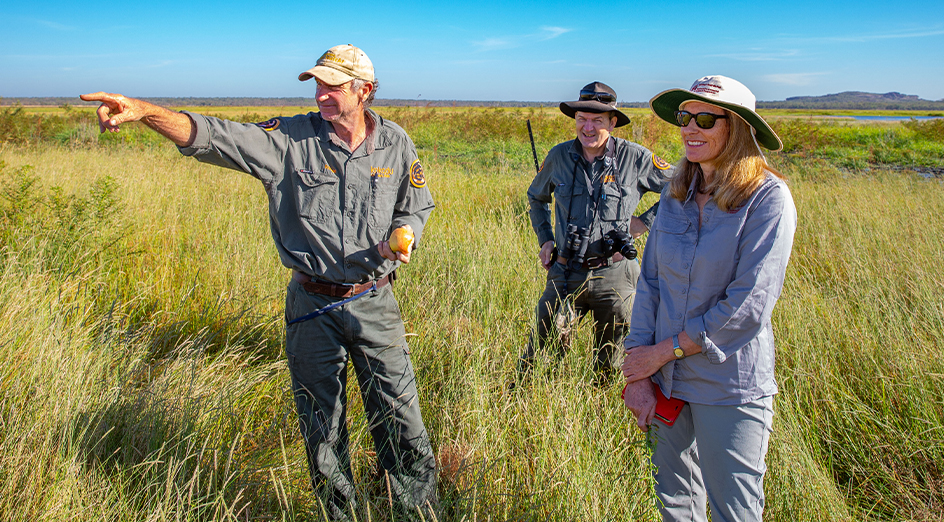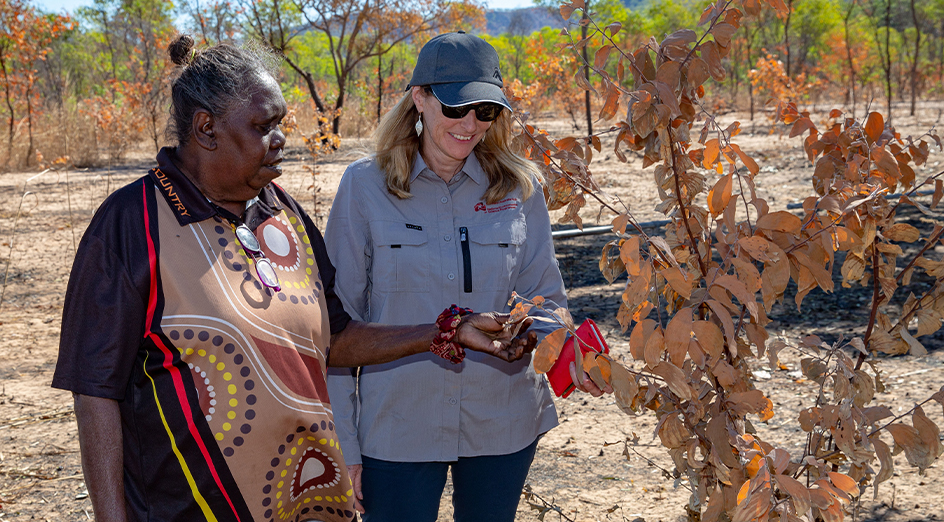17 December 2020
The University of Western Australia (UWA) will host a new Australian research hub to provide national leadership in threatened species research as well as playing a crucial role in helping the nation deal with extreme events such as bushfires.
The Federal Minister for the Environment today announced UWA would host the Resilient Landscapes Hub, one of four new hubs which will receive $47 million over seven years. The new hub is part of the second phase of the National Environmental Science Program (NESP), a program that has delivered practical environment outcomes through almost 400 successful science projects and helped shape the nation’s environmental science agenda during the past six years.
Research priority areas for the next phase of NESP will tackle the most pressing environmental management and policy needs, with an emphasis on climate adaptation, threatened species, protected places, and waste impacts.
UWA’s Professor Michael Douglas will lead the new hub with Curtin University’s Professor Stephen van Leeuwen as Deputy Hub Leader and Senior Indigenous Facilitator, and UWA’s Associate Professor Samantha Setterfield as the Western node leader. Additional regional node leaders are Professor Natalie Stoeckl (University of Tasmania), Professor Stuart Bunn (Griffith University), Professor Andrew Krockenberger (James Cook University) and Dr Dan Metcalfe (CSIRO). Professor Douglas currently leads NESP Northern Australia Environmental Resources Hub and has extensive experience in freshwater ecology; Associate Professor Setterfield is an expert in weed management and fire ecology and Professor van Leeuwen was appointed as Australia’s first Indigenous Chair for Biodiversity and Environmental Science in July this year.

UWA Associate Professor Samantha Setterfield trialling wetland weed management solutions with Kakadu National Park ranger Mick Gorse and Country and Culture Manager Feach Moyle.
The Resilient Landscapes Hub will concentrate on issues such as bushfire recovery, feral animal and invasive species impacts, and will equip land managers with the knowledge and tools they need to address the country’s most pressing environmental issues.
Professor Douglas said the new hub would carry out practical and applied research that would make a difference on the ground. It would be national in scope but include research in the Kimberley, Pilbara, Western Desert and South West of Western Australia.
Our vision is to underpin the adaptive management of Australia’s terrestrial and freshwater habitats to make them more resilient to extreme events, such as wildfire and drought, and pervasive pressures, including invasive species.
– Professor Michael Douglas, The University of Western Australia

Jawoyn Traditional Owner Bessie Coleman and UWA Associate Professor Samantha Setterfield working on fire management in Kakadu National Park in the Northern Territory.
UWA Deputy Vice-Chancellor (Research) Professor Tim Colmer said the new hub would provide practical, real-world solutions to significant environmental issues to improve the resilience of Australia’s landscapes and biodiversity outcomes.
It will provide significant opportunities for landscape resilience, restoration and recovery to support economic recovery and community prosperity, particularly in regional Australia. It will also enable our researchers to partner with Indigenous communities and ranger teams to collaboratively address community needs and develop joint solutions to environmental and land management questions.
– Professor Tim Colmer, The University of Western Australia
The three other hubs announced today are the Marine and Coastal Hub (Reef and Rainforest Research Centre in Cairns and the University of Tasmania), the Sustainable Communities and Waste Hub (University of New South Wales) and the Climate Systems Hub (CSIRO).
Researchers from Western Australian universities played an integral role during the first phase of the NESP, providing the science to support the on-ground environmental actions of Traditional Owners, industry and other stakeholders across a range of environmental programs. The hub will deliver national coverage through partnerships with the CSIRO and research institutions such as James Cook University, Griffith University, University of Tasmania, Curtin University, Queensland University of Technology, Macquarie University, University of Newcastle, University of New England, University of Southern Queensland, Flinders University, Charles Darwin University and La Trobe University.
Want to know more about the Resilient Landscapes Hub's activities and our research into practical solutions to environmental problems? Stay informed about activities, research, publications, events and more through the Hub newsletter.